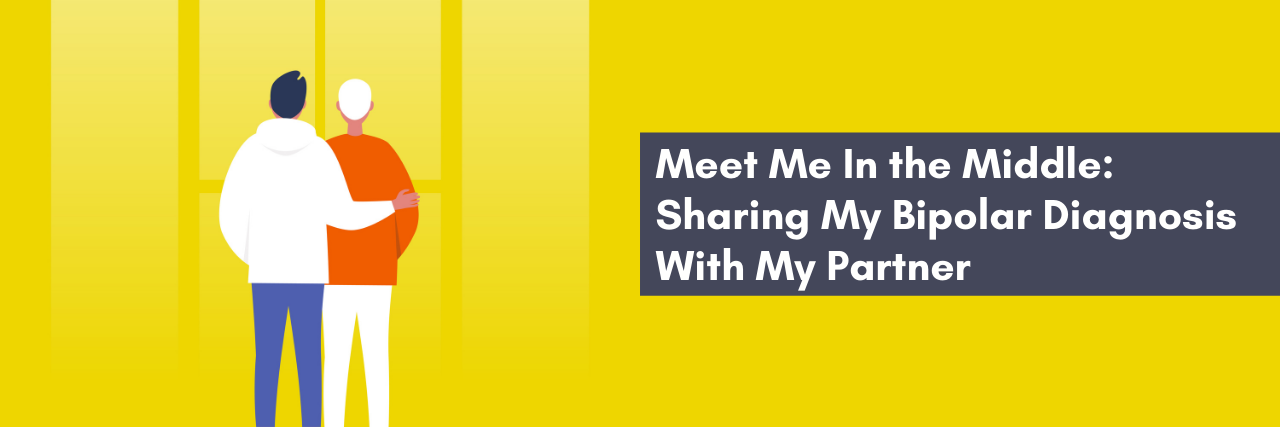Living with bipolar disorder has taught me to practice honesty, courage and vulnerability. Without these realizations, I wouldn’t have been able to talk about my diagnosis with the man I love, someone who has been deeply impacted by my episodes of hypomania and depression.
• What is Bipolar disorder?
There’s no “right” way to share a bipolar disorder diagnosis with your partner. As a therapist, I encourage my clients to examine their relationships before talking about bipolar. Does authentic and honest communication, as well as a history of feeling safe and supported, already exist? Is the relationship free from mental, emotional and physical abuse?
It’s important that the answer be yes to all of these questions first. If your answer is no, seek support from a therapist or social worker, crisis hotline or local resources. The National Alliance on Mental Illness (NAMI) has a nationwide list of support resources. I always encourage clients to rehearse and process their disclosure with a mental health professional too. I also recommend they talk about their bipolar disorder with another trusted person, if they are uncertain how it will go with their partner.
My rule for disclosure is: when in doubt, don’t. The first time I shared the diagnosis with my partner, it was too soon. I had just been diagnosed, hadn’t started medication and had recently entered 12-step recovery for addiction. He had also started to take a hard look at his alcohol abuse and frequent bouts of anxiety and depression, fueled in large part by my behaviors. While my diagnosis provided us both insight into years of turbulent, emotional mood swings and impulsive behavior, it didn’t unravel the Gordian knot of our codependency and shared trauma.
The emotional withdrawal, flashes of anger and loss of sexual intimacy from cycles of bipolar depression, as well as the dishonesty, hypersexuality and impulsiveness of hypomania, created a loss of trust and closeness between us. He felt traumatized by my hypomanic episodes and wounded by the loss of intimacy and emotional abandonment from my depressive episodes. In past relationships, he had been lied to, cheated on and emotionally abandoned. Years of living with depression and anxiety impacted his own emotional availability, and he leaned on the numbing effects of alcohol and drug use. In short, we were both suffering.
In a drunken argument, he gave me a look that said Really? You’re just now figuring that out? Then he stated, “I have no idea who you are.”
I fired back, “Welcome to the club!”
Looking back, I know my intentions were selfish and unwise. Part of me hoped that by disclosing my diagnosis, I’d be off the hook for the pain I’d caused. The truth is that while my bipolar episodes may trigger destructive behavior within myself, I still hold myself responsible for my choices and the consequences of those choices. I used my diagnosis as a last resort, but the relationship had already ended; I just didn’t get the memo. A new relationship could only grow from honesty, making amends and a fresh commitment from both of us. We had to surrender, which meant choosing to be brave and vulnerable. Together we had to refuse to make bipolar disorder my excuse, opponent or shameful secret anymore.
Our second conversation was a year later. Although we’d separated, we had been gently spending time together, with the hope of a new commitment. Here’s what made a difference:
- Ending the relationship, which was the first leap of faith we took, with the hope of healing the damage
- Starting over as friends first
- Surrendering and being willing to address and overcome self-blame and resentment
- Getting sober and a year of sobriety with a sponsor and supportive community
- Attending online meetings, talk therapy and monthly check-ins with my psychiatrist; meditating daily; journaling; and finding the right bipolar medication
- Agreeing to a one-hour conversation, rather than a three-hour marathon
- Creating a judgment-free space to listen deeply, drop our defenses and get curious
- Having a short list of questions to avoid overwhelming each other
- Sticking to the subject of bipolar disorder and offering amends for my addictive behavior, after working with my 12-step sponsor
- Offering affirming words and gratitude for a vulnerable and brave conversation
I admitted that I was powerless over bipolar disorder, and he admitted he was powerless over alcohol abuse, anxiety and depression. We still loved each other, and if we didn’t do something about our challenges, we would carry damaging behaviours into all of our relationships. We agreed we could only manage it through surrender, asking for help and accepting support from friends and family. We chose a hands-off, non-judgemental path, and we agreed there was no “right way” to do this. He chose another recovery path and found support through friends. He gradually weaned off alcohol and journaled daily. I chose a 12-step model, started mood-stabilizing medication and therapy for bipolar disorder and investigated the codependent cause-and-effect relationship of our shared woundedness. And together we agreed to go to couples counseling. We gave each other grace and acknowledged progress over perfection, which never existed in the first place. And no matter the outcome, we promised kindness and compassion to ourselves and each other. I hope our joint experience gives you hope in your journey with bipolar disorder.

